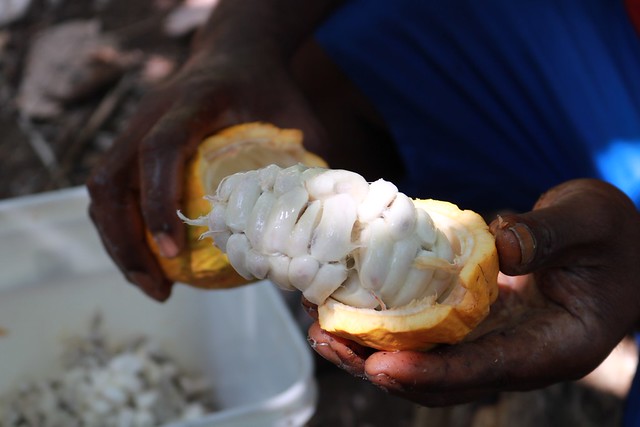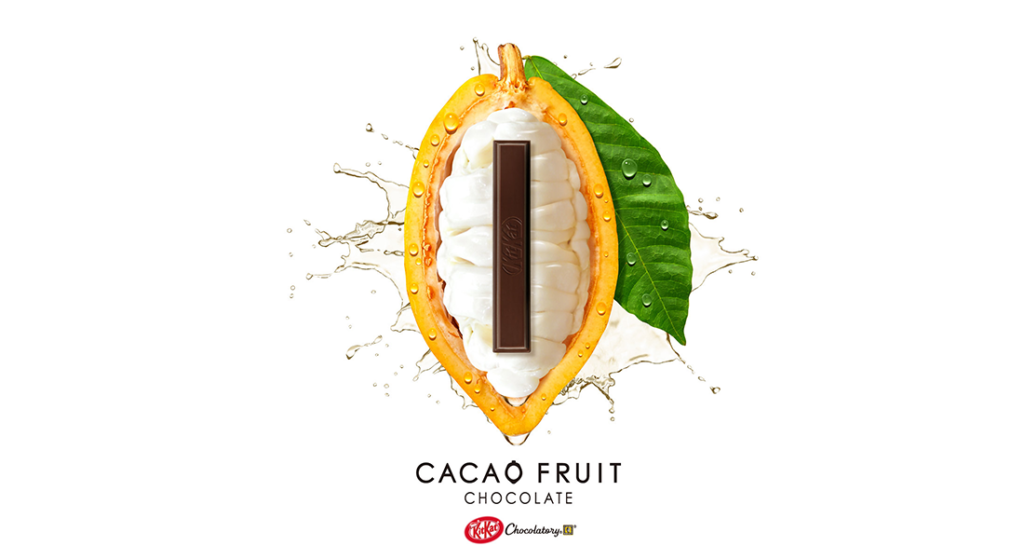Multinational Swiss brand Nestlé is introducing a new ‘cocoa fruit chocolate’ that will use cocoa pulp as a natural sweetener instead of refined sugar.
The product will be sold as a 70 percent dark chocolate KitKat bar in Japan’s KitKat Chocolatory store later this fall, which also was the first country to debut ruby chocolate in 2018. Nestlé has further plans to expand the product globally in 2020 through its other confectionery brands.
The cocoa fruit chocolate is made through Nestlé’s patented approach, which involves drying and pulverizing the white pulp surrounding the cocoa beans to create a powder that can be used as a natural sweetener without altering the taste, texture or quality of the chocolate.

“It is an innovation that focuses on the fact that cocoa is originally a fruit and provides the full taste of cocoa,” said Chef Takagi, owner, and chef of Le Patissier Takagi who helped Nestlé with the product.
Not only does the invention provide a healthier alternative to refined sugar commonly used in chocolate, but it can also be used as a sustainable way to upcycle leftover waste in chocolate production.
Cocoa pulp is sometimes used as a partial sugar to help sweeten cocoa beans during fermentation, but much like citrus pulp, the leftovers are usually thrown away, resulting in food waste. This makes Nestlé’s latest invention an opportunity to use the pulp as a viable ingredient that could replace refined sugar.
In addition to sustainability, reducing the sugar content in its confectionery products has been an ongoing goal for the multinational company.
In 2016, Nestlé’s research and development team created a process that naturally reduced the sugar content in their products by 40 percent without altering the sweetness. One of these products was the Milky Bar which launched in Ireland and the UK in 2018.
Last year, the company also made an announcement to reduce the amount of sugar, salt and saturated fats in their confectionery brands to keep up with public health agency standards and growing health trends.
Furthermore, climate change is altering the food security of cocoa production causing longer dry seasons and less rainfall. Nestlé’s new approach to utilizing more of the cocoa bean for chocolate could set the stage for other chocolate brands to create new methods for more resourceful production practices as global warming continues.












Join or login to leave a comment
JOIN LOGIN